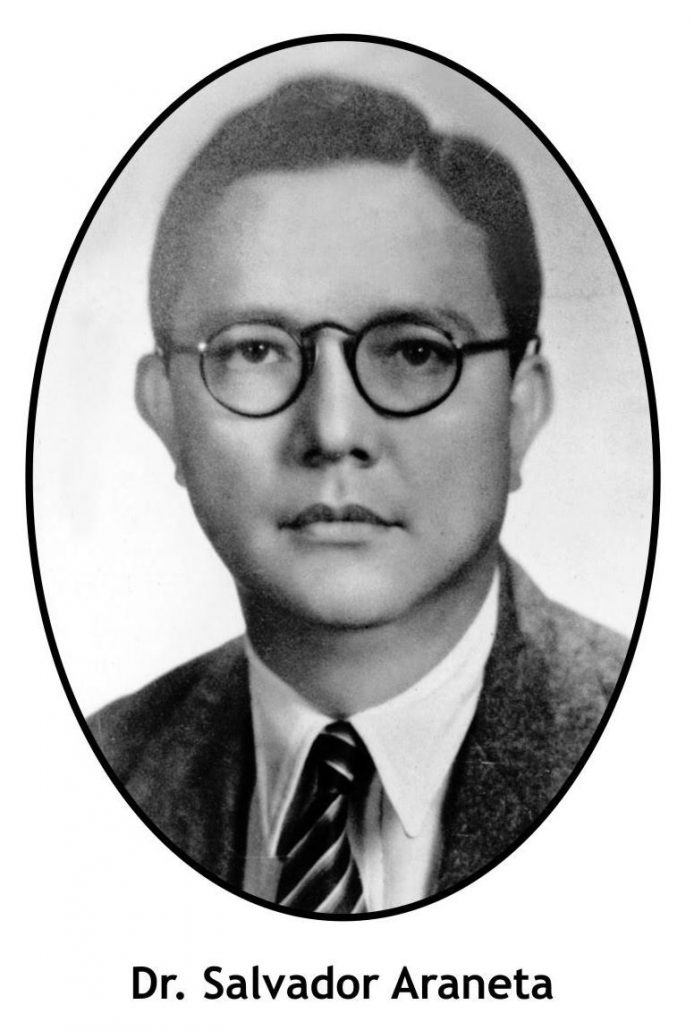 ON JULY 1, 1908, US President Theodore Roosevelt appointed Gregorio Araneta as the First Filipino Secretary of Finance and Justice.
ON JULY 1, 1908, US President Theodore Roosevelt appointed Gregorio Araneta as the First Filipino Secretary of Finance and Justice.
It was the first time a commissionership with a portfolio was given to a Filipino. At that time, the Americans did not believe that a Filipino was capable of understanding and solving problems of finance, but Araneta changed that perception.
How did a boy of modest means achieve this stature?
At age 11, Gregorio Araneta left Molo, Iloilo, where he was born, to venture alone to Manila to further his studies. His father Felix was not a member of the landed gentry. Having 17 children, it was said the he had more children than money.
The lack of money served as a challenge. Away from home, away from parents and siblings, Araneta learned self-discipline, humility and loyalty in an austere setting. He never forgot his family, nor did they. Araneta graduated from the Ateneo with grades that rivaled those made earlier by Jose Rizal and later by Claro M. Recto. He then enrolled at the University of Santo Tomas as a law student. He excelled in all his subjects there.
Araneta found a job quickly. He was employed by the most prestigious law firm in Manila headed by Jose Juan de Ycaza.
Araneta became involved with the revolutionary activities of Aguinaldo when he was defending the case of Don Francisco Roxas, as well as that of Ambrosio Salvador.
However, hell hath no fury than friars scorned! With the government controlled by the friars, justice could not be served.
Araneta became a member of the revolutionary cabinet of Aguinaldo on Sept. 28, 1898. During the Malolos Congress, Araneta was elected first Secretary and was one of those who were tasked to draft the Constitution. By this time, Araneta was considered a wealthy man which became a liability during the struggle of power that ensued between the illustrados and the katipuneros.
As Secretary of Justice, Araneta was able to extend his influence to protect the Filipino clergy from efforts by Mabini to force the local clergy to break away from the authority of the Spanish bishops and form a national church.
On Jan. 1, 1899 Apolinario Mabini reorganized the government and the office of the Secretary of Justice was abolished.
Disillusioned and disheartened by the intramurals among those working in the Malolos government, Araneta crossed over to the American lines and worked for the Americans to prove that the capacity of the Filipino was no less than those belonging to the Anglo Saxons.
He did just that! The Americans offered him the position of Chief Justice of the Supreme Court twice. Twice he turned it down.
The first time, Araneta gave way to Justice Araullo because he felt that Araullo deserved the position because of Araullo’s seniority. Once again, Araneta was offered the position, but he turned it down because of delicadeza. Araneta would not have even a speck or hint of impropriety dim the brilliant light that he had set aflame.
Araneta chose honor before glory.
To his children, he left a legacy of leaving the Department of Justice and Finance with the recognition that during his incumbency, the judiciary earned the highest esteem of the Americans who doffed their hats saying, “The Philippine bench was even better than that of their own country.”
Araneta taught his children and his students to be passionate about justice, charity and stewardship. Araneta was a master in the art of advocacy. To him, what was important in life was not the possession of money but the command of ideas that shape destinies.
Araneta’s own rule of conduct was never to be disappointed or downhearted in the midst of the greatest adversaries. That was the secret of his success. (To be continued/PN)





